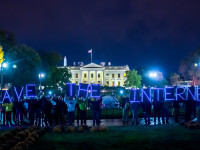Earlier this week, I posted on Ontario Provincial Police comments at the Standing Senate Committee on Legal and Constitutional Affairs hearing on Bill C-13 that were sharply critical of online anonymity. The same hearing was notable for additional comments from the OPP on the lawful access bill. The comments, which came in the opening statement, suggest that one of Canada’s largest police forces is simply unaware of the contents of the proposed legislation.
Scott Naylor of the OPP’s opening remarks included:
There is no question that some of the legislation involving technology and communication in Canada is out of date. Under the current legislation, police can only access the very basic subscriber information – i.e., name, address, telephone number – on a totally ad hoc basis, by production order from service providers. This means that there is an inconsistent response, which impedes investigations and, in extreme cases, may prolong victimization. Under the proposed legislation, Internet service providers would be compelled to provide this information in a timely fashion and on a consistent basis. Access to this information would be strictly controlled and limited to law enforcement officials, who would be fully trained in these procedures and subject to auditing and report oversight. I will repeat – auditing and report oversight.
Here is the problem: Naylor appears to think that Bill C-13 has not changed from Vic Toews’ Bill C-30. Under the lawful access bill, ISPs would not be compelled to disclose subscriber information. Indeed, the mandatory disclosure of subscriber information without a warrant was removed from the bill altogether. The bill does include incentives for voluntary disclosure, but there are no mandatory disclosure requirements. If the OPP think the bill guarantees consistent disclosure of subscriber information, it is wrong. In fact, the Supreme Court’s Spencer decision means that subscriber information now only comes (except in emergency circumstances) through a court order.










